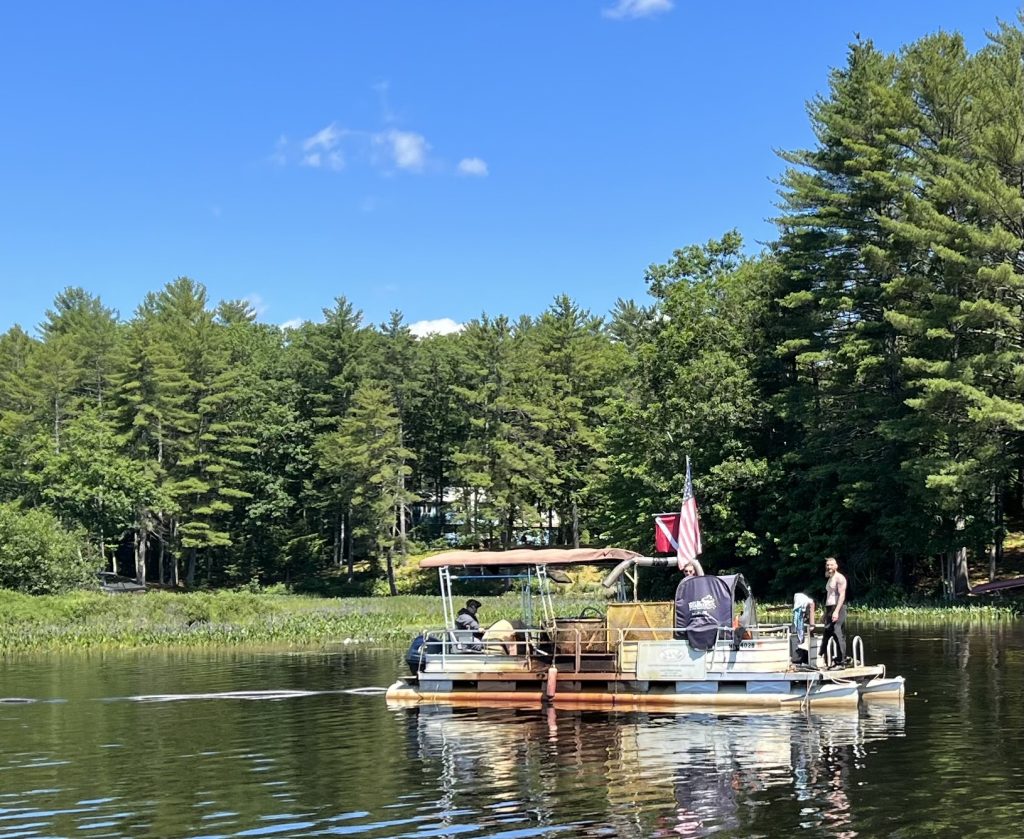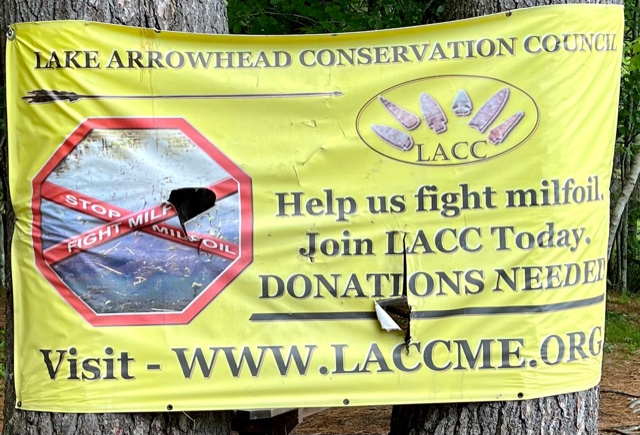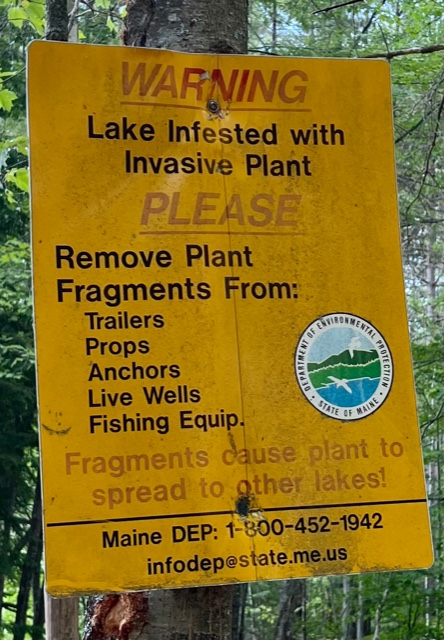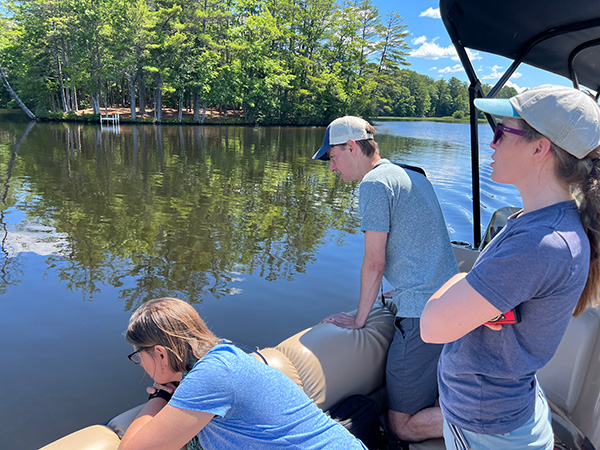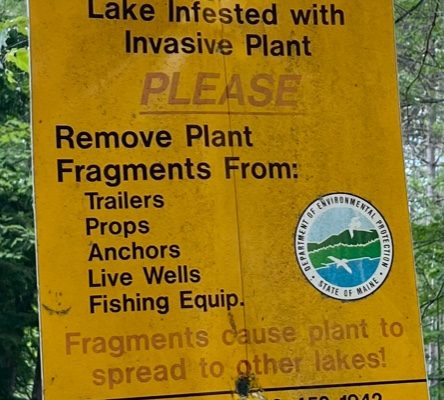Our Field Trip to Arrowhead Lake
by laurie vance – mpa Vice President
Back in July, MPA President Chip Wendler and LEA Executive Director Colin Holme organized an outing for the MPA board and LEA staff members to get a first-hand look at a lake struggling with an overwhelming infestation of invasive plants. We drove the 28 miles from Moose Pond to Limerick, ME, and boarded a pontoon boat with two Lake Arrowhead Community Board members: Mike Fitzpatrick and Dave Sanfason. Mike and Dave have worked tirelessly (24-30 hours per week!) for years trying to halt the spread of three invasive plants that are overtaking their lake.
We saw:
Docks and coves choked with thick growing milfoil making them unswimmable and not boatable.
Areas deemed a remediation “victory” that were still infested.
A shift from eradication to acceptance. A main goal was to simply carve pathways through the invasive plants from docks to the open water.
Fragments of milfoil, hydrilla, and swollen bladderwort drifting throughout the lake.
A boat crew of 4 individuals working all summer, 5 days a week, 8 hours a day, to carve pathways from coves to deeper sections of the lake.
Two divers in scuba gear actively pulling up the milfoil by hand, then feeding it into a vacuum. They called this “pluck and suck.”
A community devastated by both the lifestyle and financial impact of invasive weeds, fighting to keep their lake functional.
We learned:
Property values on the lake dropped from 20-30% due to the infestation of invasive species.
Tax revenue for the town was impacted; non-lake resident tax rates went up significantly.
The cost for remediation is currently about $100K per year.
Remediation is largely the responsibility of the community, not the state.
The two boat teams currently employed take out approximately 1,200 cubic feet (compressed) of invasive plants each summer.
Logistically, the Lake Arrowhead Community fights to keep the boat teams productive every possible day during growing season. The work is hard and hiring qualified divers is difficult.
Despite the infestation and Lake Arrowhead’s appeal to stop boats coming in and out of the lake, fishing tournaments are still allowed by IFW (Maine Inland Fishing & Wildlife). These boats can easily travel to Moose Pond and other lakes, bringing fragments with them.
The Community Boat Inspectors at Lake Arrowhead have the most “catches” of all other Maine lakes combined.
Seeing an invasive plant infestation first-hand was invaluable. We are all passionate about preserving Moose Pond for future generations. Understanding the imperative to act now to prevent or, maybe more realistically, prepare, for a potential infestation became obvious. Funding the Courtesy Boat Inspector (CBI) Program, staying vigilant when we launch our watercrafts, and watching the shoreline we use is critical. Additionally, establishing a plan and a fund for acting fast if an infestation is discovered should be a key goal for our lake association. The consequences of not acting are almost unimaginable…had we not seen it first-hand.
Understanding the imperative to
act now to prevent or, maybe
more realistically, prepare,
for a potential infestation became obvious
What you can do:
Learn, look, and report any questionable aquatic plants and animals you might see to the MPA. It’s easy:
Take a picture and send it to info@moosepondassociation.org noting the time, date and location of your “find.”
Even better, bag it with some lake water and bring it directly to the LEA at their headquarters located in Bridgton at 230 Main Street.
Contribute to the Moose Pond Association so that we can continue and expand our CBI program. This will also allow us to build up an Infestation Rapid Response Fund to address any infestation quickly and thoroughly if/when one occurs.
If we all work together, we can maintain and improve the quality of life on Moose Pond, allowing all to enjoy the lake for many generations to come.
